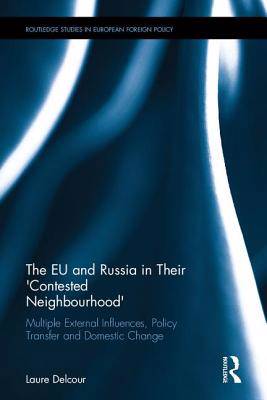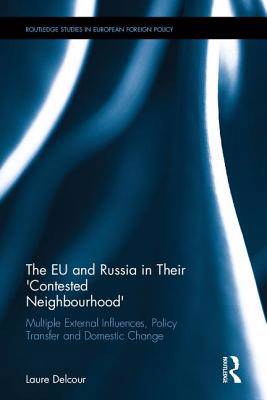
En raison d'une grêve chez bpost, votre commande pourrait être retardée. Vous avez besoin d’un livre rapidement ? Nos magasins vous accueillent à bras ouverts !
- Retrait gratuit dans votre magasin Club
- 7.000.000 titres dans notre catalogue
- Payer en toute sécurité
- Toujours un magasin près de chez vous
En raison de la grêve chez bpost, votre commande pourrait être retardée. Vous avez besoin d’un livre rapidement ? Nos magasins vous accueillent à bras ouverts !
- Retrait gratuit dans votre magasin Club
- 7.000.0000 titres dans notre catalogue
- Payer en toute sécurité
- Toujours un magasin près de chez vous
The EU and Russia in Their 'Contested Neighbourhood'
Multiple External Influences, Policy Transfer and Domestic Change
Laure Delcour
290,45 €
+ 580 points
Format
Description
This book looks at the way in which the EU seeks to influence domestic change in the post-Soviet countries participating in the European Neighbourhood Policy/Eastern Partnership and domestic receptivity to EU policies and templates. Based upon extensive empirical investigation on EU policies in four countries; Armenia, Georgia, Moldova and Ukraine - and in two pivotal policy sectors - the book provides systematic and nuanced understanding of complex forces at work in the policy transfer process.
Spécifications
Parties prenantes
- Auteur(s) :
- Editeur:
Contenu
- Nombre de pages :
- 180
- Langue:
- Anglais
- Collection :
Caractéristiques
- EAN:
- 9781138185579
- Date de parution :
- 09-01-17
- Format:
- Livre relié
- Format numérique:
- Genaaid
- Dimensions :
- 157 mm x 234 mm
- Poids :
- 417 g

Les avis
Nous publions uniquement les avis qui respectent les conditions requises. Consultez nos conditions pour les avis.






